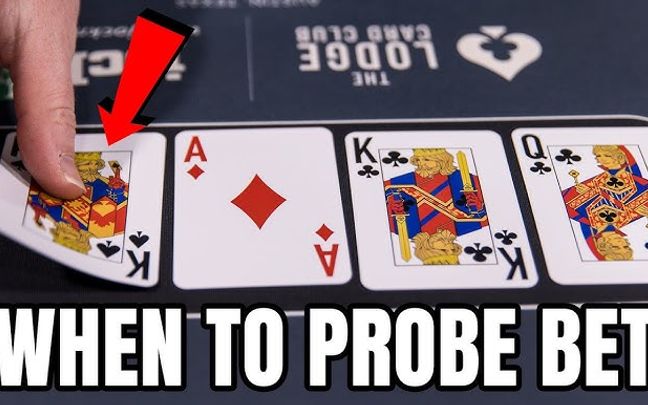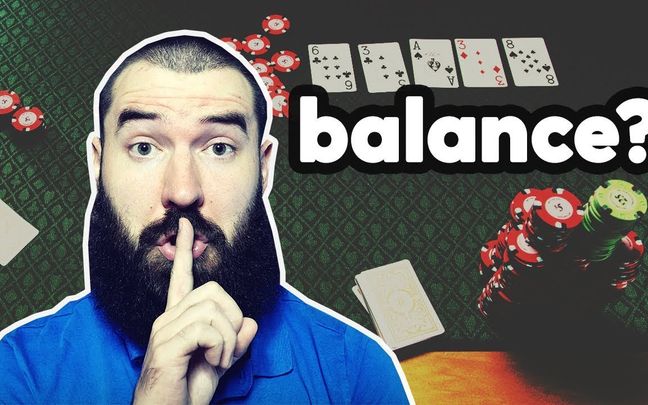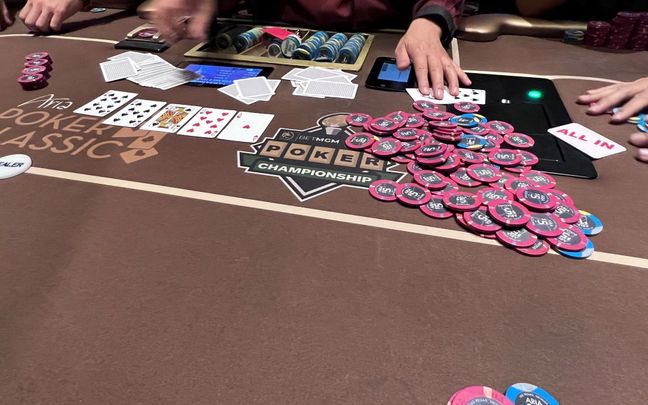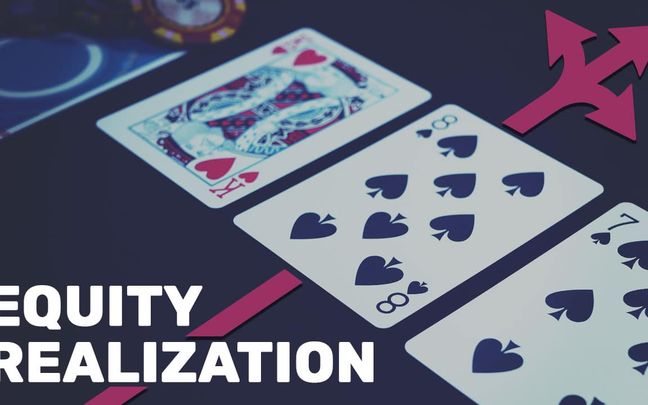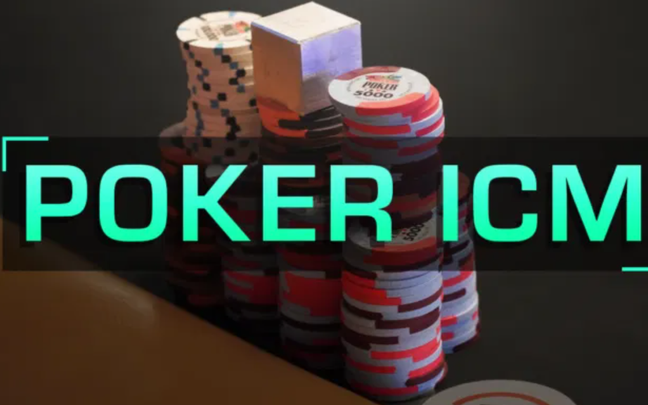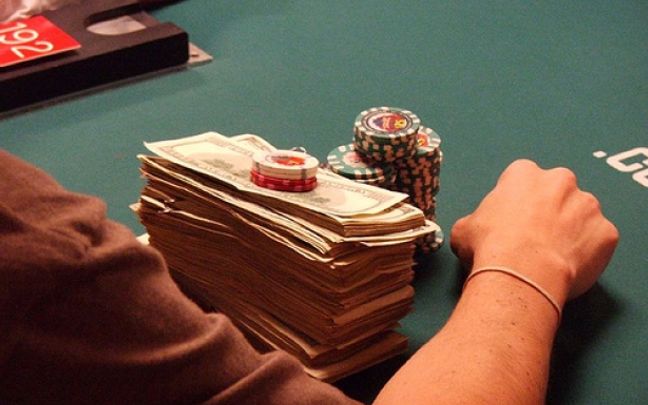In the world of poker, the concept of "Variance" plays a crucial role, marking the fluctuations in results from hand to hand. Poker is not just a game of entertainment but a complex intellectual sport. Understanding and managing variance is the first step towards effective bankroll management and beating opponents. This article delves into the concept of variance in poker and its importance for player success.

What is Variance in Poker?
Variance in poker refers to the volatility, change, or deviation in short-term game results. It reflects the degree of fluctuation in a player's profits or losses over a short period compared to the theoretical average expected outcomes.
Here are some key points about variance in poker.
Nature of the Game
Poker is a game that relies not only on skill but also on luck. Therefore, in the short term, even the best players can experience losing streaks.
Short-Term Results Do Not Reflect Skill
Variance can cause you to lose continuously or win big in a short period, but these results do not accurately reflect your actual skill level.
Bankroll Management
Understanding variance helps you manage your bankroll more effectively. You need a sufficiently large bankroll to withstand short-term fluctuations without going broke.
Patience and Mindset
You need to be patient and maintain a strong mindset to endure the losing periods caused by variance. This helps you avoid losing confidence and continue playing according to the correct strategy.
Long-Term vs. Short-Term
In the long run, your skill will prevail, and results will reflect your true level of skill. However, in the short term, variance can produce surprising outcomes.
Playing Strategy
You need to develop various strategies to deal with variance, including choosing the right tables, managing emotions, and maintaining discipline.
In summary, variance is an unavoidable factor in poker that impacts the short-term results of the game. Understanding and accepting variance helps you better prepare mentally and strategically to maintain success in poker.

Specific Example of Variance in Poker
To better understand variance in poker, let’s look at a specific example:
Scenario: You are playing a Texas Hold'em hand and are dealt a pair of Aces (A♠ A♥) - the strongest starting hand before the community cards are dealt.
Pre-Flop: You make a strong bet, and only one other player calls with J♦ 10♦.
Flop: The community cards revealed are 7♣ 2♠ 9♣. You still have the best hand and continue betting. The other player calls.
Turn: The fourth card is 3♦. You make a larger bet, and the other player calls again.
River: The final card is Q♦. You go all-in, and the other player calls.
Showdown: The other player reveals J♦ 10♦, and with the community cards (7♣ 2♠ 9♣ 3♦ Q♦), they have a straight from 9 to Q.
Outcome: Despite having a pair of Aces, which is the strongest hand before the community cards are dealt, you lose to the opponent’s straight.
Explanation of Variance: In the long run, a pair of Aces will usually win the majority of hands. However, due to the element of luck and the natural fluctuations of the game (variance), you may encounter losing streaks even with strong hands. This example clearly illustrates variance, showing how short-term results can differ significantly from theoretical expectations.
Key Points to Note:
-
Randomness: Even with the strongest starting hand, there is still a chance of losing due to the community cards.
-
Long-Term Strategy: Understanding that variance is a natural part of the game helps you stay patient and not lose confidence during losing streaks.
-
Bankroll Management: You need to have a sufficiently large bankroll to withstand these short-term fluctuations without going bust.
Variance can lead to surprising results in the short term, but skill and strategy will prevail in the long run. Understanding and accepting variance helps you better prepare mentally and manage your finances when playing poker.

What Affects Variance in Poker?
Variance in poker is influenced by several factors.
Your Playing Style
Loose and aggressive players often experience more variance compared to tight and passive players. The more hands you play and the more aggressive you are, the more fluctuations you'll encounter.
Number of Players at the Table
A full-ring table typically has lower variance compared to short-handed or heads-up play. With fewer players, you are more likely to encounter situations where you face weaker hands.
Type of Poker Game
Some variants of poker have higher variance than others. For example, Omaha usually has higher variance than Texas Hold'em because players receive more cards, leading to more possibilities for strong hands.
Opponent's Playing Style
Opponents who are unpredictable or who make large bets can increase variance. Facing many uncertain situations and difficult decisions will lead to higher variance.
Number of Hands Played
The more hands you play, the more noticeable the effects of variance will be. In the short term, results can be very different, but in the long term, your skill will prevail.
Size of Bets
Larger bets generally lead to higher variance. For example, high-stakes games will have greater fluctuations compared to low-stakes games.
Emotional Control
Players with good emotional control are less negatively affected by variance. Those who cannot manage their emotions may go on tilt, leading to suboptimal decisions and increased variance.
Tournament vs. Cash Game
Tournaments generally have higher variance compared to cash games due to their elimination nature. You can play well but still be eliminated due to an unlucky hand.
Your Strategy
Your strategy, including bankroll management, table selection, and tactical decisions, directly affects variance. A consistent and disciplined strategy helps to reduce variance.
Random Factors
Of course, luck and randomness in card distribution play a significant role. You cannot control the cards you receive, which creates natural fluctuations in results.
Understanding these factors helps you better prepare to handle variance, maintain consistent performance, and improve your poker skills.

In summary, variance in poker is not just a theoretical concept but an integral part of the experience for professional players and enthusiasts alike. By understanding and adjusting to these fluctuations, you can face the challenges of your poker career with greater confidence. Apply these insights and continue to refine your skills to become a more proficient and successful poker player.


